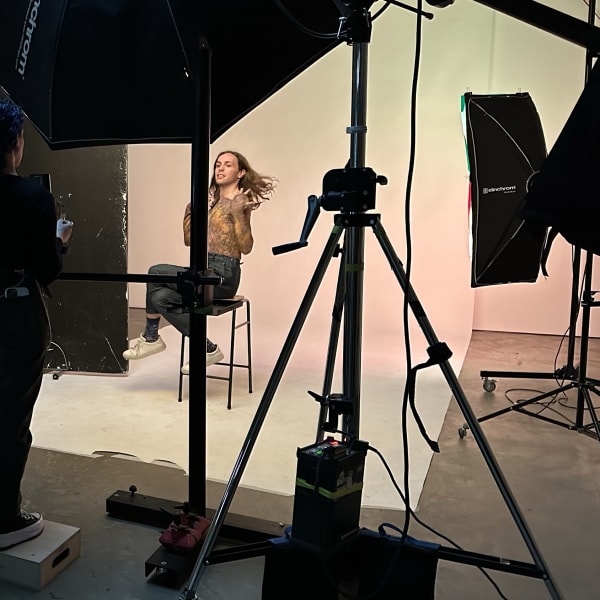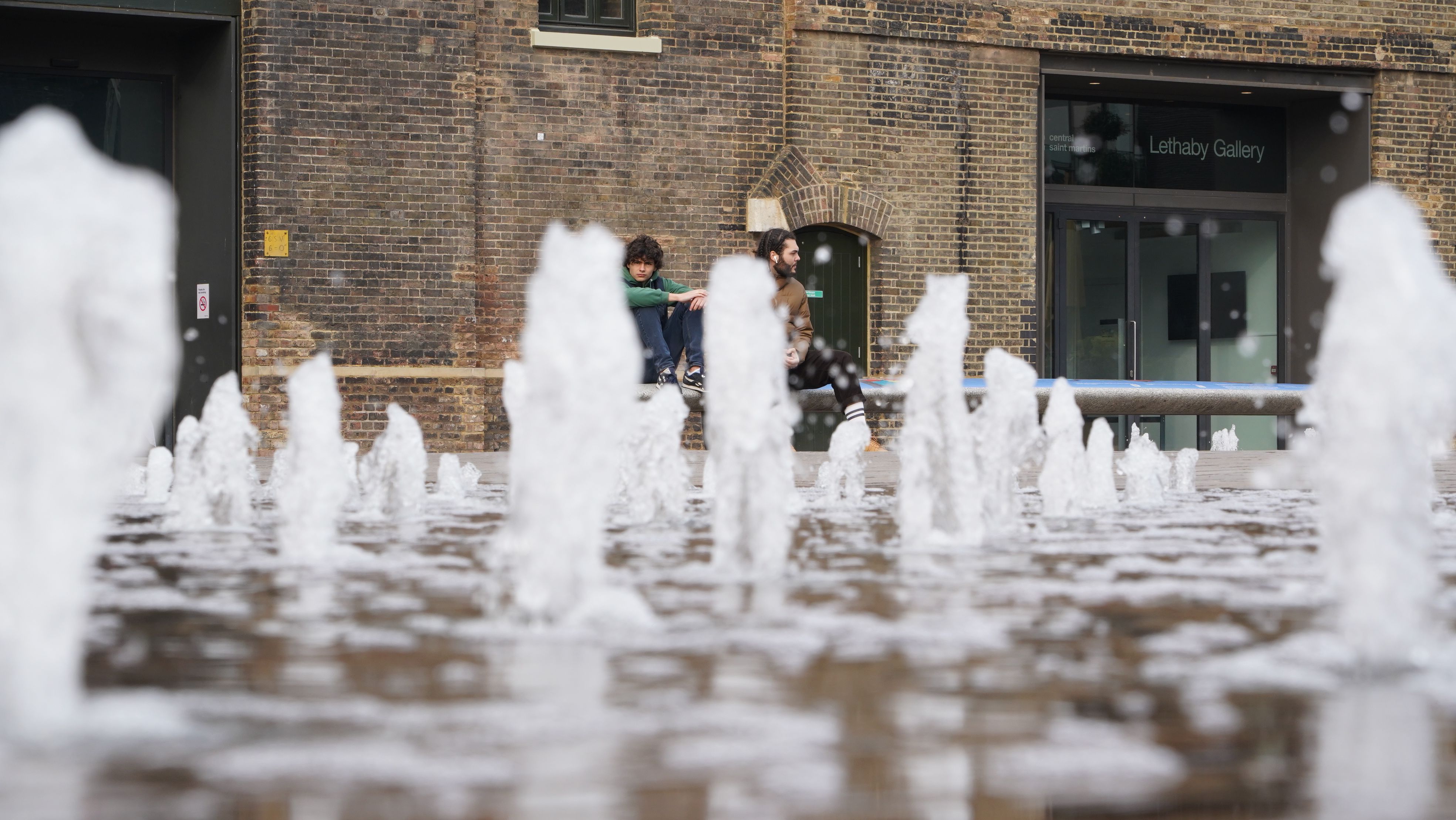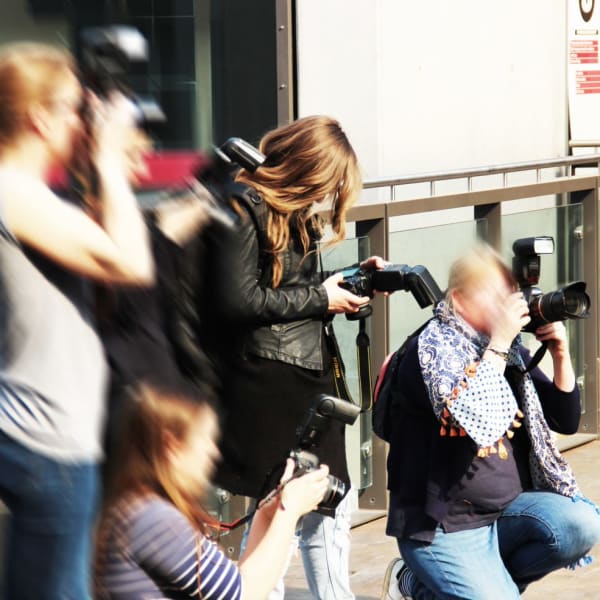
How to become a professional photographer

- Written byCarys Thomas
- Published date 31 May 2024

Are you looking to build a career as a professional photographer?
The photography industry is competitive and it can be difficult to know how to get started as a budding photographer.
This guide offers some top tips on how to forge a path for yourself in this exciting industry. We’ll explore what it takes to be a professional photographer and discuss why it’s so important to find your niche if you want to stand out in a crowded market.
We’ll also hear from professional photographer and short course tutor, Daniel Keys. Daniel is a winner of the British Journal of Photography’s Portrait of Britain Award and teaches on our Complete Photography Short Course alongside photographer Jet Jet.
What does a professional photographer do?
You might think that photographers spend all day taking photos but this is in fact only one aspect of the role. A photographer’s work also involves editing and retouching images, booking locations, reproducing photos, networking, marketing and other administrative tasks.
Many photographers are self-employed, which means that a key part of the role is networking in order to establish a client base and secure future work. If you’re looking to work in a freelance capacity you’ll need to be prepared to put the hours in to market your services and grow your business.
What does it take to be a professional photographer?
Budding photographers should be creative, detail-oriented, and have strong networking skills. You'll need to be committed to a career in the industry and prepared to work hard to develop your skills.
It will take time to establish your own photography practice, and if you plan to be self-employed, you must be willing to invest the time required to grow your business.
Read on for our 5 top tips on how to get started:
1# Find your niche
One way to stand out from other photographers is to find your niche. Ask yourself what kind of work you want to pursue, or which style of photography appeals to you most.
“Ask yourself what it is you are wanting to show with your photographic work and how you could express that visually,” says Daniel. “Build on your practice to find your own unique style.”
Our Complete Photography Short Course is the perfect opportunity to gain experience in multiple areas of photography and explore your interests.
Take a look at our guide on 5 types of photography to master for an overview of some different styles and approaches.
2# Secure some work experience
Work experience is essential for success in the photography industry. Search for opportunities in your local area and consider internships or volunteer work.
Daniel suggests assisting other photographers to gain experience on professional shoots.
Any experience you can get will be a great way to boost your CV, make connections and meet potential new clients.
3# Take a class
Taking a class or short course can help to advance your skills, knowledge and confidence. Having a professional qualification in photography can also be advantageous when it comes to applying for jobs and marketing your services.
You can also improve your knowledge and understanding of the medium by visiting exhibitions, talking to artists and reading around the subject.
“Go to exhibitions and libraries to see other photographer’s work,” says Daniel. “Investigate the history of photography and the development of the medium.”
4# Build your network
As many photographers are self-employed, building a network is an essential part of the role. Try to build connections with others in the industry wherever you can.
Think about joining a professional body to stay up-to-date on new opportunities, competitions and events in the industry. The Royal Photographic Society offers lots of helpful resources and runs regular competitions for aspiring photographers.
One way to expand your professional network is to develop a website or portfolio to showcase your work and share it online. Include a link to your portfolio on your LinkedIn or social media accounts, share through email and pass it on to family and friends.
5# Don’t give up
It’s important to be persistent if you want to be a professional photographer. Be open to constructive criticism and take any opportunity you can to develop your skills and learn from more experienced photographers.
Experiment with different approaches to hone your technique. But most importantly, follow your passions and don’t give up.
If you're looking for some inspiration, you may be interested in our guide on how to improve your photography skills for some top tips from professional photographer and UAL short course tutor, Mark Aitken.
The Complete Photography Short Course
The Complete Photography Short Course is an exciting 20-week course designed to teach students a range of skills using analogue and digital to support the development of their photography practice.
Through a series of lectures and practical exercises, students develop their skills, knowledge and portfolio.
“Students learn basic to advanced photography skills and find out how to build a tailored professional portfolio (art or commercial photography),” Daniel explains.
The course is a great way to develop practical skills and gain an understanding of how to communicate using the medium of photography.
During the course, students develop 5 key learning skills:
- Analogue and digital photography skills – using a range of cameras (35mm/medium format/5x4)
- Black and white darkroom printing – from basic to advanced
- Processing and scanning analogue negatives
- Shooting in a studio and studio lighting techniques
- Shooting on location
Becoming a fashion photographer
If you're interested in fashion photography, our Fashion Photography Short Course can help you learn the fundamental skills involved in taking original fashion images for a variety of commissioners.
Students on this course will focus on the practical photography techniques that need to be mastered in order to deliver fashion photos to a professional standard.
Feeling inspired?
Our short courses in photography could help you kickstart your career in the photography industry.
Take a look at our photography short courses to find out how they could help you build your dream career.

